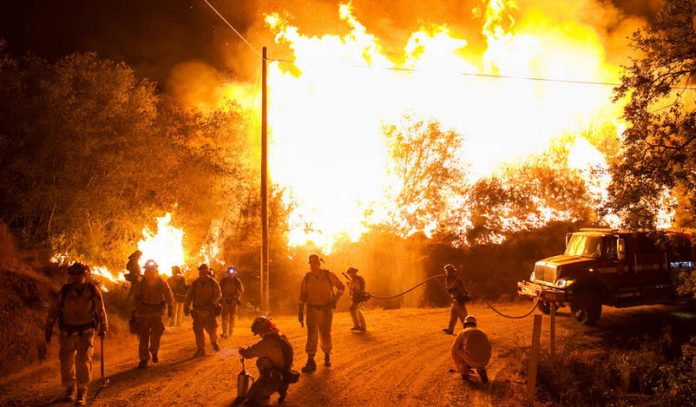Futurewise Legislative Wrap-Up: The Story Behind House Bill 2427, the GMA Climate Goal Bill
At Futurewise, we believe that local government planning needs to more directly address climate change. We need planning that helps us reduce emissions, especially from transportation, and we need planning that helps us adapt to the impacts of climate change like rising sea levels and increased flood and fire hazards. For these reasons, we pushed hard this year to add a climate goal to the state Growth Management Act (GMA). This year we came up short, but we are better positioned to pick the fight back up next year. Here’s what happened.
Leadership in the House: Our current legislature is blessed with many new members with bold visions and a desire for action. This year Representative Davina Duerr (D-Bothell) stepped up to lead the fight for addressing climate change in the GMA. Representative Duerr introduce House Bill 2427 which added a climate goal to the 14 existing goals in the GMA. She also introduced a more ambitious bill, House Bill 2609, that would have implemented both a climate goal as well as a climate element. The element would give greater direction on how cities and counties should address climate change in their comprehensive plans. There are currently nine mandatory elements. It became clear early on that we didn’t have the votes to pass the more ambitious House Bill 2609 this year, but we might be able to pass House Bill 2427 this year to add the climate goal and build momentum for the full climate element in the 2021 session.
A Deal to Pass in the House: Our main opposition came, not from the fossil fuel industry, but the Washington State Association of Counties. In the House, with help from Representative Duerr and Environment and Energy Chair Joe Fitzgibbon (D-Burien), we were able to strike a deal with the Counties. We would agree to go to a 10-year planning update cycle (instead of the current 8 and 10 years depending on the community’s population and rate of growth), House Bill 2342, in exchange for passage of the climate goal. We negotiated a five-year check-in on critical areas and housing that made us more comfortable with going to a 10-year update cycle. With this tentative deal in place, House Bill 2427 and House Bill 2342 passed the House with bipartisan support!
Trouble in the Senate: We were optimistic going into the Senate. We had an agreement with our main opposition, bipartisan support coming out of the House, and it looked like we had the votes if we could make it to the Senate floor. However, two last minute developments cut the wind from our sails. First, the Washington State Association of Counties board voted against supporting a five-year check-in as part of the 10-year update cycle bill that was part of our deal in the House, which made them no longer interested in supporting the climate goal bill in order to get the update cycle change.
However, our bigger problem was in the Senate local government committee. The Committee Chair, Senator Takko, has been focused on a budget proviso to fund a GMA stakeholder negotiation process in 2020 that could set up compromise GMA legislation to pass in 2021. Ultimately, Chair Takko decided that climate change should be part of these 2020 negotiations and did not to let the climate goal bill out of committee.
Living to Fight Another Day: With this delay, we risk missing the coming update cycle because the first cohort of counties are starting work on their eight-year comprehensive plan updates in 2020. We cannot afford to wait another eight years for the next update cycle to incorporate climate change into comprehensive plans. For those reasons, we have agreed to a new deal that would use House Bill 2342, still alive in the Senate, to delay the update cycle by one year. If this bill passes, it will give us another year to engage in the stakeholder process funded by Senator Takko’s budget proviso (more on that below) and engage our supporters to build the political will to address climate change in the GMA. We will need your help to pass full planning for climate change in 2021.
Bonus: Budget Proviso for Net Ecological Gain
We also wanted to highlight an important budget proviso that appropriates $256,000 for the Department of Fish and Wildlife to assesses how to incorporate a net ecological gain standard into state land use, development, and environmental laws and rules. The proviso is a response to Representative Debra Lekanoff’s House Bill 2550, which did not pass out of the House.
Net ecological gain would be a stronger standard for ecological health and endangered specifies recovery, including salmon recovery, than is currently used in most relevant state laws and rules. The assessment would be required to address the Shoreline Management Act (SMA), Growth Management Act (GMA), and state agency approvals for construction projects in state waters. The assessment would include development of a definition, goals, objectives, and measurable performance metrics for the standard of net ecological gain as well as recommendations on funding, incentives, technical assistance, legal issues, monitoring, and the use of scientific data.
Futurewise will continue to engage on this issue with Representative Lekanoff, our partners who are leading advocacy on this issue at the Washington Environmental Council, and the State Department of Fish and Wildlife, particularly with respect to the impacts on the SMA and GMA.
Futurewise works throughout Washington State to encourage healthy, equitable, and opportunity-rich communities and to protect our most valuable farmlands, forests and water resources through wise land use policies and practices. Founded to help support implementation of the first-in-the-nation Growth Management Act, we focus on directing equitable growth into our urbanized areas and preventing the conversion of wildlife habitat, open space, farmland, and working forests to subdivisions and development.


